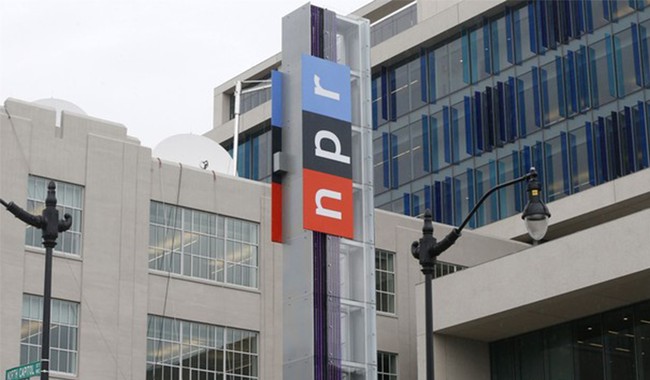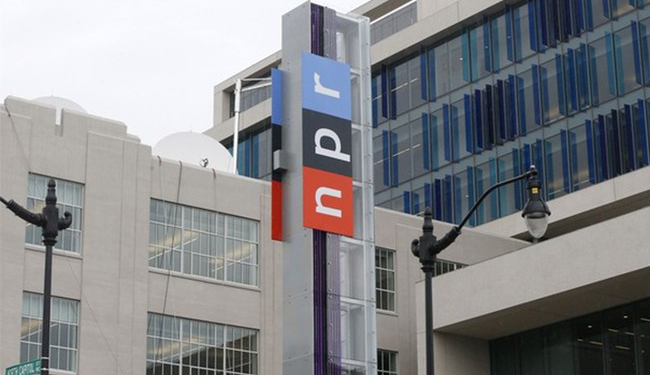
Uri Berliner’s provocative recent essay lamenting “the absence of viewpoint diversity” at NPR brought to mind the critiques of Liz Spayd, the little-remembered final public editor at the New York Times.
Spayd, like Berliner, was a veteran journalist whose departure was a study in the limited tolerance at elite American news organizations for contrary thinking and inward-directed criticism. Spayd left the Times in 2017 when her position as in-house critic was unceremoniously dissolved. Berliner was suspended without pay soon after his essay about NPR was posted this month at the “Free Press” site on Substack. He resigned within days, closing a 25-year career at the public broadcaster.
The two cases, while dissimilar in their details, are both instructive, signaling a distaste for challenges arising from within newsrooms of major media outlets, even when raised by journalists with many years of experience. They also point to an eclipse of values of impartiality, fair-mindedness, and ideological distance that defined American journalism, at least nominally, for decades.
Spayd alluded to those diminished values in her swan song column, writing that “in the long run stories that are measured in tone are more powerful. Whether journalists realize it or not, with impartiality comes authority — and right now it’s in short supply.”
Spayd, whom Esquire once described as “the embodiment of traditional journalistic standards,” lasted less than a year as public editor, but her tenure at the Times embraced the 2016 presidential election and its aftermath. She wrote often, and sometimes sharply, about the Times’ uneven coverage that failed to anticipate Donald Trump’s shock electoral victory over Hillary Clinton.
“The picture was of a juggernaut of blue state invincibility that mostly dismissed the likelihood of a Trump White House,” Spayd wrote about the Times’ Election Day reporting in 2016.
She later described “a searing level of dissatisfaction out there with many aspects of the coverage” about the campaign, adding that many readers complained that the Times’s “attempt to tap the sentiments of Trump supporters was lacking. And they complain about the liberal tint The Times applies to its coverage, without awareness that it does.”
In her final column, Spayd wrote that she was aware that some of her “opinions — especially about partisan journalism — don’t always go over well with some of the media critics in New York and Washington. I’m not prone to worry much about stepping in line with conventional thinking. I try to hold an independent voice, to not cave to outside—or inside—pressure, and to say what I think, hopefully backed by an argument and at least a few facts. In this job, I started to know which columns would land like a grenade, and I’m glad to have stirred things up. I’ll wear it like a badge.”
Even though she had impressive credentials in elite journalism — Spayd once was managing editor of the Washington Post and editor and publisher of Columbia Journalism Review — her departure stirred little of the controversy that Berliner’s critique has provoked. But the assertiveness of her critique of the Times can be recognized as an antecedent, in broad terms at least, to Berliner’s compelling essay about NPR.
Berliner wrote that an “open-minded spirit no longer exists within NPR, and now, predictably, we don’t have an audience that reflects America.”
Berliner’s essay identified another persistent infirmity of mainstream journalism — the deep reluctance to revisit and explain why news coverage of major stories careen off-track.
“It is one thing to swing and miss on a major story. Unfortunately, it happens,” Berliner wrote.
What’s worse, he added, “is to pretend it never happened, to move on with no mea culpas, no self-reflection. Especially when you expect high standards of transparency from public figures and institutions, but don’t practice those standards yourself.”
Berliner’s critique included discussion about two major stories in which NPR’s reporting was distorted or deficient: the never-proven allegations that Trump colluded with Russian intelligence during the 2016 campaign and that the contents of a laptop abandoned by Joe Biden’s son, Hunter, were Russian disinformation and not revealing of corrupt influence-peddling that threatened to upend the elder Biden’s 2020 campaign for president.
Both were major stories that corporate news outlets mostly botched or willfully ignored.
When special counsel Robert S. Mueller turned up “no credible evidence” that Trump had colluded with Russia, “NPR’s coverage was notably sparse,” Berliner wrote. “Russiagate quietly faded from our programming.” The investigation’s outcome did not align with ideology-driven expectations.
Berliner noted that NPR’s managing editor for news, Terence Samuels, dismissed the explosive Biden laptop story as a distraction. “We don’t want to waste our time on stories that are not really stories, and we don’t want to waste the listeners’ and readers’ time on stories that are just pure distractions,” Berliner quoted Samuels as saying.
NPR, Berliner wrote, “could have fessed up to our misjudgment” in shunning the laptop story. “But, like Russia collusion, we didn’t make the hard choice of transparency.”
The aversion to self-examination, “to move on with no mea culpas,” is a well-recognized failing in corporate media. Berliner’s essay gave the shortcoming prominence, if briefly.
As media critic Jack Shafer noted years ago, journalists tend to be more willing to address a minor mistake in their reporting than they are to revisit major error.
“The rotten truth,” Shafer wrote, “is that media organizations are better at correcting trivial errors of fact — proper spellings of last names, for example — than they are at fixing a botched story.”
Shafer likened journalists to “doctors, lawyers, and pilots in that they hate to admit they were wrong no matter what the facts are. Institutionally, publications avoid massive mea culpas out of fear of feeding libel suits. Call them on their hypocrisy for expecting government and business to admit errors while they stay silent and journalists will tell you that nobody wants an annotated and corrected version of yesterday’s news.”
That’s true enough about “yesterday’s news.” Journalists like to fancy themselves as forward-looking, committed to pursuing what’s next, what’s new. But a better explanation is that retrospective assessments of blown coverage can be mortifying, or ought to be. It’s easier in such cases to adopt the advice of the Uncle Toby character in “Tristram Shandy and A Sentimental Journey” and “say no more” about the embarrassment. To wipe it up and move on.

